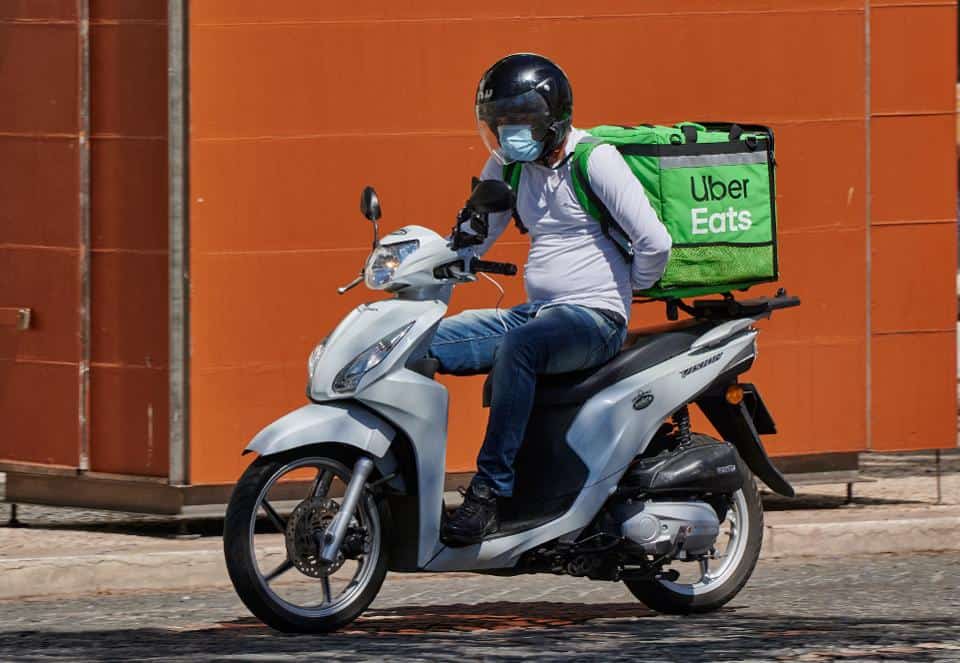After announcing on Monday its plan to buy Postmates for $2.65 billion, Uber says it’s confident that the acquisition will help it become profitable by 2021, even as its ride-sharing business continues to struggle amid low demand during the coronavirus pandemic.
“We’re very confident we’re going to get to profitability next year and we have enough of a diversified portfolio to make that statement with quite a bit of confidence,” Uber CEO Dara Khosrowshahi told CNBC on Tuesday.
Uber’s stock has risen 7% since the company on Monday announced that it would buy food delivery service Postmates in an all-stock transaction, worth $2.65 billion, in a deal that will likely close in the first quarter of 2021.
The deal merges the fourth-largest U.S. food delivery company with Uber Eats, the second-largest service by market share after DoorDash, according to Second Measure and Edison Trends.
Uber’s Postmates acquisition will massively boost its Uber Eats service and comes weeks after it failed to buy larger rival GrubHub, which instead accepted a bid from European company Just Eat Takeaway.
Uber said in January that it expected to turn a profit on an Ebitda (earnings before interest, depreciation and amortization); basis by the fourth quarter of 2020, but withdrew its guidance in May after the coronavirus pandemic wreaked havoc on the economy and led to business shutdowns.
While Uber Eats bookings more than doubled in the second quarter amid higher demand during the pandemic, Uber’s core ride-sharing business has slowed dramatically.
Coronavirus cases are growing in over 35 states including Texas and Florida with many now pausing reopenings or reimposing lockdowns altogether—that’s bad news for Uber, which sees about 25% of its rides coming from commuters going to work, according to a report from BTIG last week.
But Uber’s CEO says the slowdown in ride-sharing is now moderating: Gross bookings were down 75% from last year in the second quarter, but are now down only 60%, he said in a recent call with investors.

